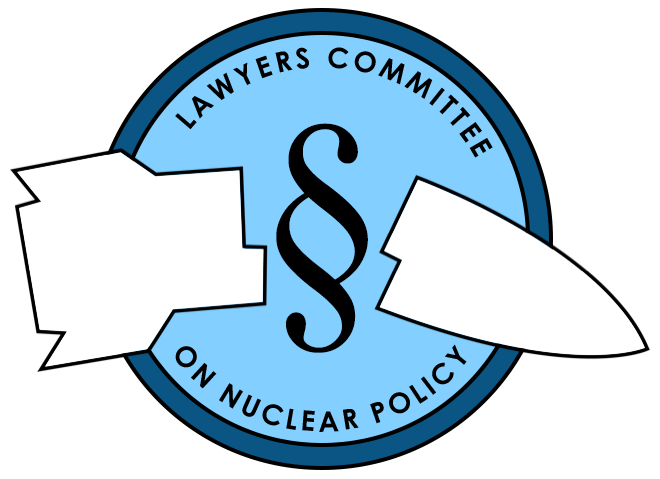The rising risk of conflict between nuclear weapon-possessing states turning nuclear and thus annihilative is undeniable today, in Ukraine and potentially in Taiwan and elsewhere. What deserves more attention is that this risk is exacerbated by emerging technology. However difficult in present circumstances, now more than ever nuclear powers must pursue effective arms control.
Read MoreMr. President: We are deeply concerned about the potential effect of the AUKUS submarine agreement on the Nuclear Nonproliferation Treaty (NPT). If the submarines are fueled with weapons-grade High Enriched Uranium (HEU), as currently contemplated, it could severely affect our national security by undermining the entire nonproliferation regime.
Read MoreIn March, President Biden released his annual budget proposal, including what would be one of the largest budgets for defense in United States history: $813 billion with nearly $51 billion allocated to nuclear weapons spending.
Read MoreOn April 25, Secretary of Defense Lloyd Austin provided a revealing and disturbing glimpse into a darker element of US policy when he stated: "We want to see Russia weakened to the degree it cannot do the kinds of things that it has done in invading Ukraine."
Read MoreWe are appalled and saddened by the suffering and devastation caused by Russia’s illegal invasion of Ukraine. News of atrocities committed by Russian forces adds to the outrage and sorrow. It is imperative, above all, to end the war.
Read MoreWith the UN Security Council paralyzed by the Russian veto, in two resolutions adopted by the UN General Assembly a large majority of UN member states have strongly condemned the Russian invasion of Ukraine as aggression in violation of the UN Charter. The International Court of Justice, the UN judicial branch, has also weighed in.
Read MoreThe Lawyers Committee on Nuclear Policy strongly condemns Russia’s attack on Ukraine. The Russian invasion is in clear violation of international law, and is causing the people of Ukraine to experience terror, suffering, and death.
Read MoreIf the Ukraine crisis erupts into war – even intensified limited war in Eastern Ukraine with overt Russian intervention – the consequences will be severe and far-reaching.
Read MoreWe strongly support your stated intention to reduce the role of nuclear weapons in national security policy. Diminishing the role of these weapons should be a guiding directive in the pending revision of the Nuclear Posture Review.
Read MoreThe use and threat of use of nuclear weapons is incompatible with multiple rights enshrined in the International Covenant on Civil and Political Rights (ICCPR). For practical reasons, however, this submission concentrates on the non-derogable right to life (Article 6)—the most fundamental human right.
Read MoreLawyers Committee on Nuclear Policy (LCNP) welcomes the entry into force of the Treaty on the Prohibition of Nuclear Weapons (TPNW) today, January 22, 2021. The TPNW joins and robustly affirms an existing body of international law that condemns and prohibits the threat or use of nuclear weapons.
Read MoreThe use and threat of use of nuclear weapons is incompatible with multiple rights enshrined in the International Covenant on Civil and Political Rights (ICCPR). For practical reasons, however, this submission concentrates on the non-derogable right to life (Article 6)—the most fundamental human right.
Read MoreCommentary and Analysis regarding UN Human Rights Committee General Comment no. 36; the Treaty on the Prohibition of Nuclear Weapons; Human Rights, Democracy, and Nuclear Weapons.
Read MoreLawyers Committee on Nuclear Policy (LCNP) celebrates Human Rights Day today, which commemorates the United Nations General Assembly’s adoption of the Universal Declaration of Human Rights (UDHR) in 1948. The UDHR, the International Covenant on Civil and Political Rights, and the International Covenant on Economic, Social and Cultural Rights form the International Bill of Human Rights.
Read MoreNuclear weapons endanger human civilization. Yet nine states—the United States, Russia, China, France, the United Kingdom, India, Israel, Pakistan, and North Korea—pursue security by threatening their use. The rule of law is one of the most important constraints on the threat, use, and proliferation of these devices and is crucial to their control and elimination.
Read MoreThe Treaty on the Prohibition of Nuclear Weapons (TPNW) will become binding law for participating states on January 22, 2021. Entry into force was triggered on October 24, the date marking the 75th anniversary of the United Nations, when Honduras become the 50th state to ratify the TPNW, reaching the threshold set by the treaty.
Read MoreAs of today, 50 states have ratified the Treaty on the Prohibition of Nuclear Weapons (TPNW). By its terms, the treaty will enter into force in 90 days, becoming legally binding for states that have joined the treaty.
Read MoreThe Lawyers Committee on Nuclear Policy (LCNP) opposes the Nuclear Regulatory Commission’s (NRC) proposed interpretative rule on the transfer of “very low-level waste” to exempt persons for the purpose of disposal.
Read MoreUncertainty and unrest define our current circumstances. The pandemic, the crippling of economies, and climate-change stoked fires have further revealed vulnerabilities and inequities of our societies as well as new sources of potential conflict, notably climate migration.
Read More






